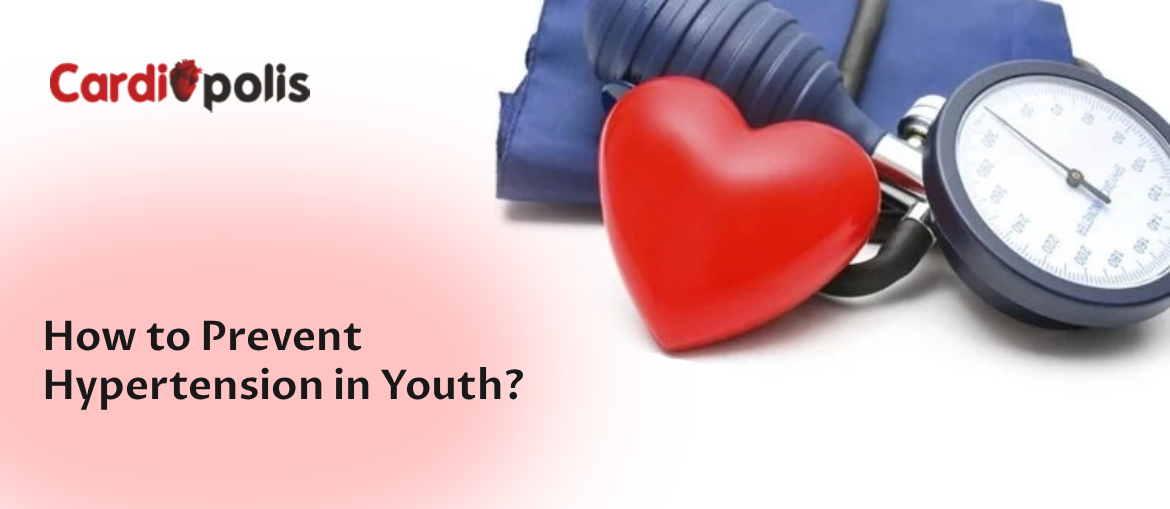Hypertension, also known as high blood pressure, is no longer an issue only for the older generation in the modern and fast-paced world. The changing lifestyles, poor diets, stress, and physical inactivity are increasingly drawing young people into the diagnosis of this condition.
It is therefore important to take steps to prevent high blood pressure in young people to promote long-term heart health and wellness.
Understanding Hypertension
Hypertension is a condition in which the force of blood against the walls of arteries is always above normal. Gradually, such overwork leads to the heavy work of the heart that is required to pump blood and might damage blood vessels and raise the chances of heart disease, stroke, kidney failure, and other complications.
In adults, the normal blood pressure reading is usually below 120/80mmHg. Readings that are constantly above 130/80 mmHg are said to be hypertension.
Why is Hypertension Increasing Among Youth?
Several current lifestyle practices have exposed young people to hypertension compared to earlier generations.
- Sedentary lifestyle: Sitting, using digital devices, and physical inactivity are the major contributors to high blood pressure.
- Malnutrition: A poor diet can raise blood pressure by eating more processed foods, consuming more salt, and drinking sugary drinks.
- Obesity: Excess weight puts extra strain on the heart and arteries, leading to high blood pressure.
- Anxiety and tension: Educational tensions, employment worries, and interrupted sleeping patterns are all part and parcel of youth and all contribute to high blood pressure.
- Smoking and alcohol: Nicotine and alcohol influence the work of blood vessels and the heart rate, resulting in long-term damage.
Practical Steps to Prevent Hypertension in Youth
High blood pressure among the youths can be controlled and prevented by the following measures:
Adopt a Balanced Diet
Include an abundance of fruits and vegetables, whole grains, lean meats, and low-fat or fat-free dairy. Limit consumption of processed meats, red meat and foods that contain a lot of saturated fat.
Limit Salt Intake
Children and adolescents need to aim for less than 2,300 milligrams of sodium a day and even less at 1,500 milligrams is preferred. Reading the labels on foods and choosing the lower ones can make a big difference.
Maintain a Healthy Weight
Often, physical activity, combined with a correct diet, is a sufficient means of controlling body weight and keeping the heart rate in check. A small reduction in body weight can have a beneficial effect on blood pressure.
Stay Physically Active
Young people should aim to be active for at least 150 minutes per week at a moderate intensity, including activities such as brisk walking, cycling, swimming or jogging.
Manage Stress
Prolonged stress triggers the release of hormones that increase blood pressure temporarily. Stress-relief methods, including deep breathing, yoga, meditation, or time in nature, can help keep emotions in balance.
Avoid Smoking and Limit Alcohol
Smoking destroys the lining of blood vessels, whereas heavy drinking increases blood pressure. These habits not only keep the heart safe but also improve overall health and vigor.
Get Enough Sleep
Sleep deprivation may cause blood pressure and heart rate to rise. Young adults are supposed to aim for 7-8 hours of good-quality sleep per night. The quality of sleep can be enhanced by maintaining a regular sleep schedule and limiting screen time before bed.
Regular Health Checkups
Although you might feel healthy, you should check your blood pressure regularly. Timely intervention and lifestyle correction can be done by early identification. There are numerous health facilities and drugstores that offer free blood pressure checks.
Role of Awareness and Early Action
The impression that hypertension is a disease of the elderly is no longer valid. Schools, colleges, and workplaces can contribute significantly by launching awareness campaigns, health check-up drives, and promoting physical workouts.
It is also the responsibility of parents and educators to promote healthy eating and physical activity among children at a young age because what they develop at a young age is likely to persist into adulthood.
High blood pressure in the young population is an increasing issue that can be prevented mostly by adopting a conscious lifestyle. A balanced diet, physical exercise, stress management, avoiding tobacco and alcohol, and regular check-ups can go a long way to having a healthy body and heart.
These little but regular efforts can help young people to avert the silent dangers of high blood pressure and can help develop a background of lifetime cardiovascular disease.

Comments are closed